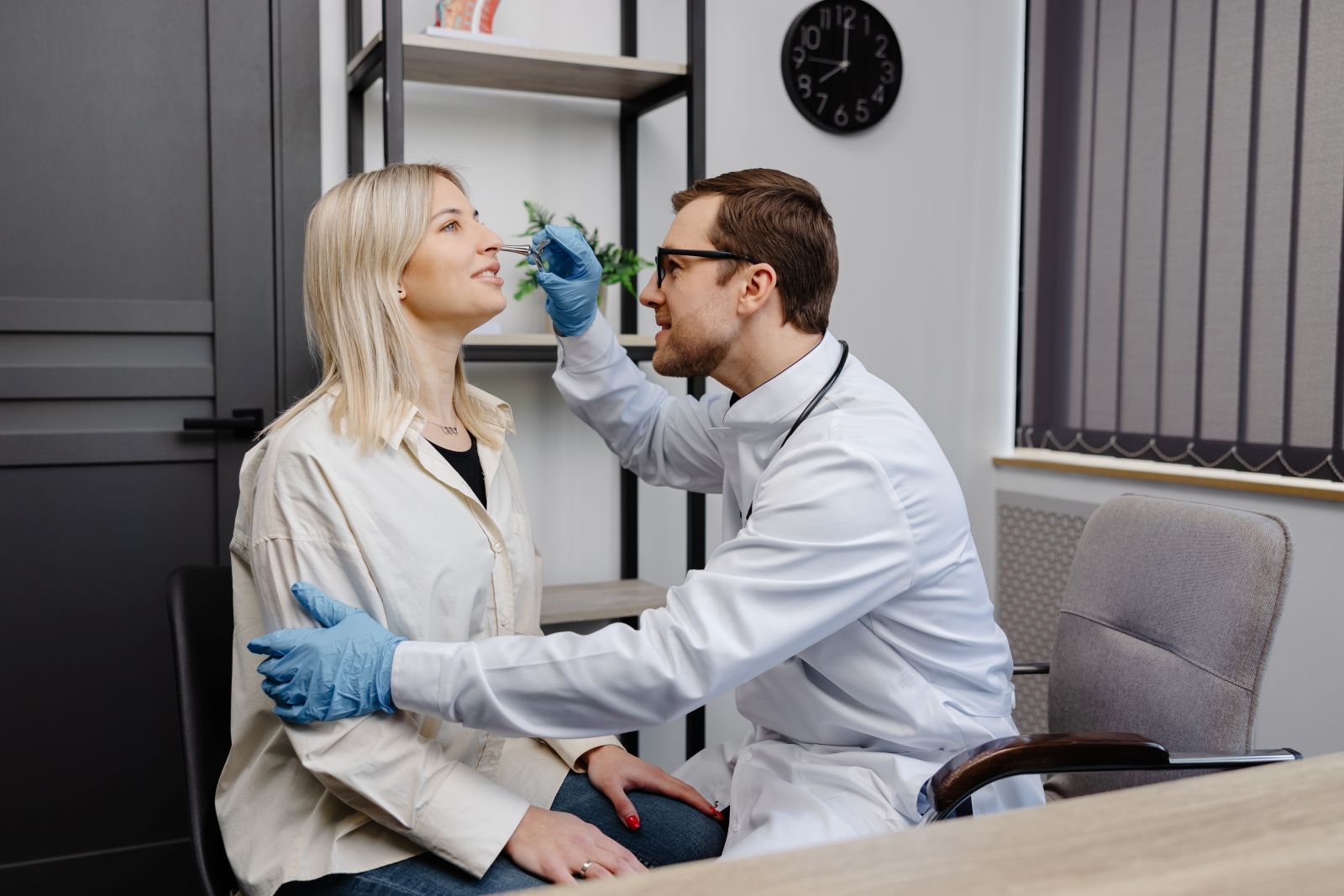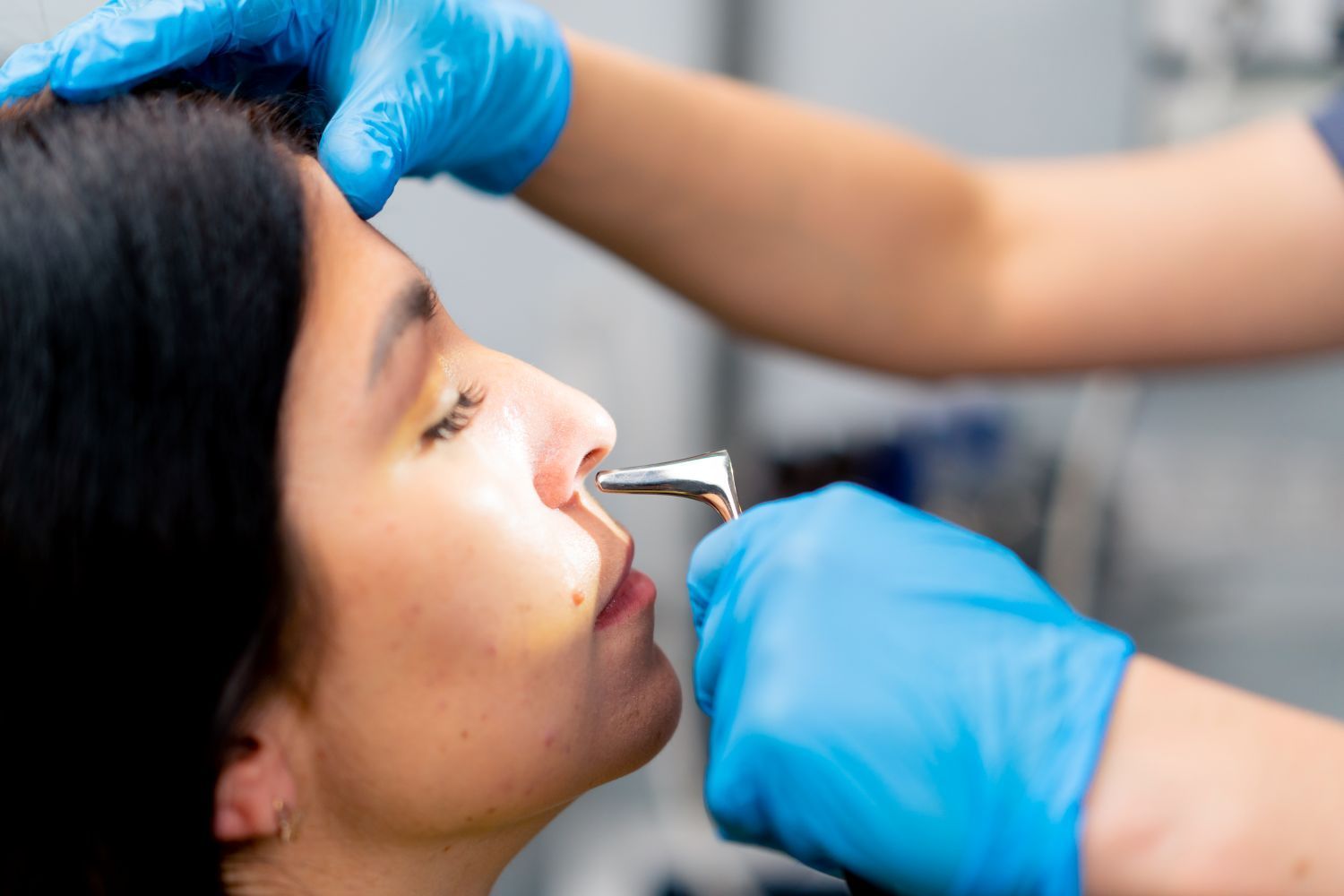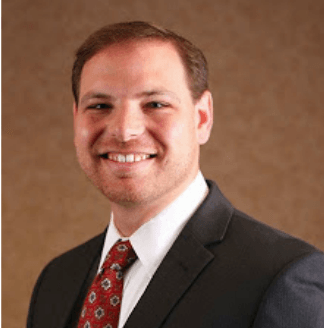When to See a Rhinologist | A Sinus ENT Specialist
A rhinologist is a board-certified surgeon who has expertise in the field of rhinology. In simpler terms, a rhinologist refers to an otolaryngologist, also known as an ear, nose, and throat specialist, who has undergone fellowship training in treating and performing surgeries on the nose, sinus, and skull-base. A rhinologist is also referred to as a sinus doctor or nose doctor.
The road to becoming a rhinologist is a lengthy one. After acquiring a bachelor's degree, the graduate must complete medical school training and otolaryngology residency, obtain a valid medical license, and gain certification in a specific field of specialization called Rhinology and Skull Base Surgery.
A rhinologist must be approved for the sixth year of highly specialized training beyond that required of a typical ENT doctor to earn this distinction. Diagnosing and treating illnesses of paranasal sinuses, the nose, as well as skull base and orbit are the focus of this specialization.
If you want to understand your treatment options, you can read more about our services for nasal polyps, chronic rhinitis, and sinus surgery.
Top Indicators That It's Time to See a Rhinologist
Ever since the dawn of civilization, the role of the paranasal sinuses and treatment options for sinus infections have fascinated mankind. Very little was understood about the function of the sinuses and the causes of nasal-related problems. Due to the lack of information, self-diagnosis and self-treatment were widespread. The available treatments included everything from aromatherapy to cold baths to cautery and tooth extraction. Sinusitis complications were found to cause meningitis and even death. Surgical techniques were highly risky and involved blindly chiseling into the sinus bone or making large facial incisions that scarred people for life.
Advances in surgical and clinical techniques and the invention of operational endoscopes, as well as computer-aided systems, have revolutionized the sinus surgery industry entirely. For instance, endoscopy involves using a plastic tube with a camera attached to it to precisely treat and diagnose sinus-related conditions in a procedure called nasal endoscopy. The tube is manipulated through tiny physiological body holes through a minimally invasive procedure, which is a safer method for diagnosing and treating such conditions. Endoscopic sinus surgery is now performed as an outpatient surgery to functionally improve the sinus drainage pathways and rid the sinuses of nasal polyps and infection.
Therefore, you can ensure that these specialists will thoroughly evaluate your symptoms before offering a treatment plan. Rhinologists are professionals in performing functional endoscopic sinus surgery (FESS) and treating patients surgically and medically based on the extent of the specific sinonasal ailment. Below are some of the most common symptoms to consider if you should go for a consultation with an expert rhinologist.
Chronic or Recurrent Sinus Pain
When exposed to high amounts of allergens, dust build-up, or your nasal passage dries out due to excessive exposure to heat or air conditioning, it is possible for your sinus lining to become enlarged, irritated and painful. This enlargement obstructs the normal drainage of mucus, making your nose stuffy. If such symptoms last for several months or is not cleared by typical antibiotic treatment, it is time to consult a rhinologist. Sinus pain may affect your ears, nose, face, and upper teeth.
Sinus infection, also referred to as sinusitis, is a cold-like illness that makes the sinuses swollen or inflamed. "Recurrent sinus infections" are classified as at least four sinus infections annually. The paranasal sinuses are empty spaces in the bones surrounding our nose, cheekbones, and bones behind our forehead, eyebrows, and the nose at the front of our brain. These vacuum areas are linked to the nose via a few channels. Once the sinus lining swells due to infections, it blocks the sinus openings, resulting in sinusitis, a disease where these cavities get clogged.
Note that sinusitis can be chronic or acute, and its effects can be frustrating. Long-term sinusitis, often called "chronic sinusitis," is a series of sinus problems that don't react to medication/treatments or symptoms that persist for more than three months.
Some common symptoms of sinusitis include:
- Nasal congestion
- Altered sense of taste or smell
- Discolored nasal discharge
- Postnasal drip
- Swelling and redness of the nasal lining
- Coughing
Allergy and sinusitis symptoms might be difficult to distinguish. Nose allergies tend to result in increased sneezing, itching, and watery eyes and nose, which are symptoms of "rhinitis," which solely involves swollen nasal passages. Another term associated with chronic sinus conditions is asthma. As these two illnesses can exacerbate one another, it is crucial to treat them both aggressively.
Diagnosis and Treatment
An evaluation of the sinuses, nose, and throat is necessary to diagnose a sinus infection. An endoscopy is gently placed in the nose to find the sinus infection and identify if the patient has anatomy that increases their risk for sinus infections. A CT scan (image) of the sinuses may be performed if a sinus infection is severe or persists for a long time.
The results of these tests will help the rhinologist determine the type of illness and the appropriate medication to administer to the patient. For instance, your otolaryngologist may recommend antibiotics if bacteria caused the condition. Your doctor could recommend taking an anti-inflammatory drug like topical nasal corticosteroids if you have nasal polyps or chronic rhinitis. Other treatment options include:
- Balloon sinus dilation or functional endoscopic sinus surgery
- Antihistamines
- Oral corticosteroids
Sinus surgery requires expert surgical techniques. A rhinologist is trained to perform revision sinus surgery to correct issues caused by a previous procedure or complicated sinusitis. Frontal sinus surgery is one of the surgeries that a fellowship-trained sinus specialist can handle when many otolaryngologists struggle. Extended endoscopic approaches are available as well that replace larger surgeries with facial incisions.
Once you visit an expert in rhinology, because of any of the symptoms listed above, they will determine the cause of your sinus discomfort and devise the most effective treatment strategy for you.
Stuffy and Runny Nose
Also known as chronic nasal drip, a runny and stuffed nose is the most prevalent symptom of a common cold. It is caused by the inflammation of the inner part of the nose. The minor or regular runny nose usually goes away after several days or weeks. It is vital to contact a rhinologist in Louisville KY if your runny nose is severe, persistent, or only on one side. This could signify a more severe underlying condition, like a cerebrospinal fluid (CSF) leak.
Sinus infections and allergies are the most common inflammatory conditions that cause a runny nose. About 30% of people in the U.S. experience allergic rhinitis, which is most frequently brought on by environmental allergens that induce the nasal mucosa to create inflammatory mediators resulting in clear mucus. Additionally, sinus infections can worsen nasal irritation and increase the production of clear or colored mucus.
A runny nose can have a more dangerous non-inflammatory cause, like excessive nasal nerve stimulation-induced mucus overproduction and cerebrospinal fluid (CSF) leaks. While this is generally uncommon, it can become more frequent following a head or facial injury. The CSF surrounding the brain can flow down to the sinuses and enter the nose. Vasomotor rhinitis, a disorder caused by overactive nasal nerve stimulation, can cause specific individuals to produce a clear and watery nasal discharge that flows rapidly from the nose.
Below are symptoms of a runny nose that require a rhinologist's attention:
- A salty taste in the mouth from the clear nasal drip
- Excessive nasal drip accompanied by a persistent cough
- Neck stiffness or severe headaches accompanying the nasal drip
- Nasal drip that begins after sinus surgery or head/facial injury
- Unpredictable and embarrassing clear nasal drip
Diagnosis and Treatment
Finding the underlying reason for your runny nose accompanying other sinus or nasal symptoms is the key to effective treatment and therapy. Your rhinologist will examine your nasal tubes and sinuses using nasal endoscopy. They may also perform a CT scan of your sinuses if they suspect that CSF is the cause of your runny nose.
Among the treatment options available for this condition include:
- Antihistamine spray or nasal steroids for a runny nose resulting from allergies
- Antibiotics if the nasal drip is resulting from a sinus infection
- In the case of chronic rhinitis, a minimally invasive procedure known as ClariFix® or cryoablation is effective
- Anticholinergic nasal spray for a runny nose resulting from vasomotor rhinitis
- A vidian neurectomy is another form of treatment for severe cases of vasomotor rhinitis. It is a highly specialized technique used to cut the nerve in charge of the increased mucus production
Nasal Polyps
The nose and nasal airways can occasionally produce water-bag-like sprouts called nasal polyps. They result from inflammation and often do not pose a threat or cause cancer. Unless there is an inherent issue, they often do not hurt. Their growth may be influenced by allergies, aspirin sensitivity, or past bacterial infections. They might even be the root of some people's persistent or recurring sinus issues.
Nasal polyps come in various sizes and frequently do not show symptoms until they get big enough to obstruct nasal airflow. Note that there are other tumors in the sinuses and nose besides nasal polyps. Such lesions that resemble nasal polyps include antrochoanal polyps, mucocele, sinus tumors, and mucus retention cysts.
Clusters of nasal polyps can form, and those resistant to medical treatment might need them removed surgically. Symptoms of nasal polyps include:
- Loss of smell and taste
- Nasal congestion
- Headaches
- Runny nose
- Excessive snoring
- Postnatal drip
Note that people may have severe nasal polyps, characterized by eye complications like double vision and swollen eyes. Complications around the eyes, such as swelling around the eyes or double vision, may occur in persons with severe nasal polyps. Although severe sinusitis is frequently correlated with multiple nasal polyps, not everyone with sinusitis will experience polyp development. Since they are so minuscule, nasal polyps can only cause minor symptoms.
Causes of Nasal Polyps
The emergence of nasal polyposis has been linked to a few medical disorders. They include:
- Allergic Fungal Rhinosinusitis (AFRS)
- Cystic Fibrosis
- Allergies (Hay fever)
- Asthma
- Aspirin Exacerbated Respiratory Disease (AERD)
Diagnosis and Treatment
The diagnosis of nasal polyps takes place using a nasal endoscope, a tiny tube attached to a small camera that aids in looking through the nose. However, some further evaluation may be necessary. Laboratory tests or a CT scan of the sinuses are other forms of diagnosing this condition.
When it comes to the treatment of nasal polyps, surgery or medication is applicable. There are numerous other therapies that your rhinologist can recommend. These treatment options include:
- Antibiotics for related bacterial infections
- Allergy immunotherapy, including SLIT- sublingual immunotherapy and SCIT-subcutaneous immunotherapy
- Nasal sprays, like Nasacort, Flonase, and Nasonex, to treat chronic rhinitis
- Oral corticosteroids for managing inflammation temporarily
- XHance and steroid sinus rinses, commonly known as budesonide sinus rinses
- Aspirin desensitization for people who suffer from AERD
- Nasal Polypectomy combined with sinus surgery aids in easing symptoms after surgery and optimizing the efficiency of medications. They are a form of maintenance drugs that control inflammation. They can be taken before and after as well as with or without sinus surgery
- Monoclonal antibodies, like Xolair, Dupixent, and Nucala, are additional treatment options for patients with chronic rhinosinusitis and severe type 2 inflammation with nasal polyps. They can be administered as a subcutaneous injection in a rhinology office or at home.
Other Symptoms That Show It's Time to See a Rhinologist
It is advisable to visit a rhinologist when you experience:
- Smell loss (Anosmia)
- Allergic fungal sinusitis
- Prolonged allergic reactions
- Cerebrospinal fluid leaks (CSF)
- Chronic eye tearing (epiphora)
- Nose bleed (epistaxis)
- Deviated septum, meaning the bridge separating the nostrils has moved sideways
- Inferior turbinate enlargement due to inflamed mucosa as a result of chronic sinusitis or rhinitis
- Decreased sense of smell (hyposmia)
- Nasal obstruction
- Nasal valve collapse
- Runny nose
- Bulging eyes (Orbital proptosis)
- Skull base tumors
- Pituitary tumors
- Sinus mucoceles
How Do Rhinologists Stay Up to Date with Advancements in Their Field?
Rhinologists ensure they are knowledgeable about the latest advancements in their field through multiple methods. One way they accomplish this is by actively participating in regional and national rhinology meetings, such as the annual American Rhinologic Society Meeting and the Combined Otolaryngology Spring Meeting (COSM), where they have the opportunity to learn about recent developments and shared experiences from other professionals. Additionally, they dedicate time to reviewing journal articles, which allows them to stay informed on current research findings and advancements in medical and surgical techniques specific to rhinology. Moreover, rhinologists actively engage in multidisciplinary skull base disorder team meetings, enabling them to collaborate with experts from various fields and discuss the most recent breakthroughs in the diagnosis and treatment of related disorders. Their commitment to these ongoing educational activities and interaction with fellow experts ensures that rhinologists stay up to date with the dynamic advancements in their field.
What Additional Training Do Rhinologists Receive?
A rhinologist undergoes a sixth year of highly specialized training beyond that required of a typical ENT doctor to earn this distinction. This additional training equips them with the necessary expertise to diagnose and treat a wide range of illnesses specific to the paranasal sinuses, nose, as well as the skull base and orbit. During their intensive fellowship in Rhinology, which typically lasts one to two years, rhinologists receive focused instruction on the medical and surgical management of complex disorders of the nose and sinuses. This includes conditions such as sinus tumors, cerebrospinal fluid leaks, recurrent nasal polyps, and complicated chronic sinusitis. Since they deal with these challenging nasal and sinus disorders daily, rhinologists amass a wealth of experience and knowledge, enabling them to effectively handle even the most uncommon sinus conditions. The rigorous training and dedication of rhinologists ensure that patients receive the highest standard of care for their specialized nasal and sinus needs.
Consult a Professional Rhinologist in Louisville KY
If you have any warning signals mentioned above, you should immediately schedule an appointment with a sinus doctor near you. The faster you act when you discover a symptom, the sooner you can get the appropriate care and treatment to eliminate pain and distress.
We approach every patient with the care and expertise they deserve. Dr. Thomas Higgins will create a personalized treatment plan based on your symptoms, lifestyle, and medical history. He is a fellowship-trained rhinologist in Louisville KY and Jeffersonville, IN, with expertise in handling nose, anterior skull base, and paranasal sinuses conditions.
Furthermore, Dr. Higgins researches these areas and continues to lead the way in surgical and management advancements for sinus disease. He also frequently treats complex sinus diseases that have not improved with prior medical treatment or surgery. Although there are several "Sinus Surgeons" in the U.S., Dr. Higgins is one of only a handful of specialists with advanced training in the field of rhinology that goes beyond residency.
Due to his experience, he can assist patients who have endured persistent issues despite having had several sinus surgeries and have been told there is no hope by other ENTs or "sinus surgeons." Dr. Higgins collaborates with expert ophthalmologists and neurosurgeons to frequently perform nose-based procedures for the skull base and eyes without any skin incisions.
So, don't hesitate to make an appointment with Dr. Thomas Higgins, MD, MSPH in Louisville, KY, or Jeffersonville, IN, to learn more about our expert rhinology services. We are dedicated to giving you relief for your nose, paranasal sinuses, and anterior skull base condition.
Thomas S. Higgins, MD, MSPH
Father. Husband. Sinusitis Nerd.















